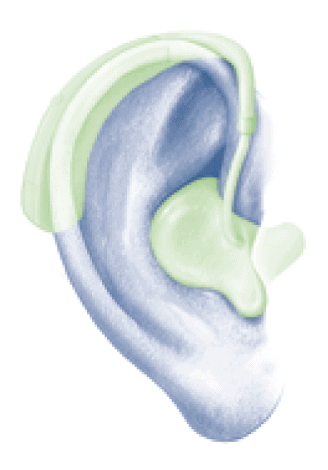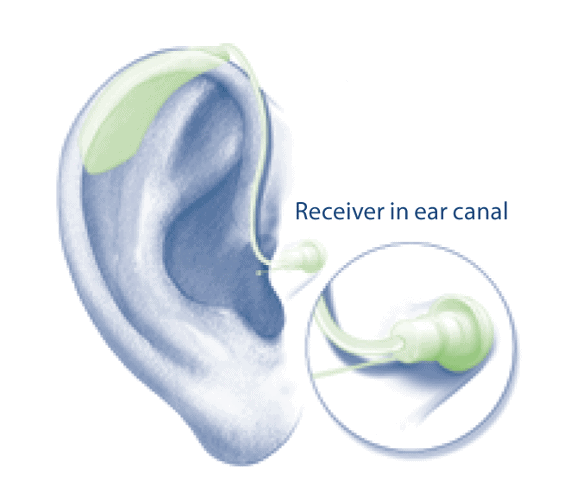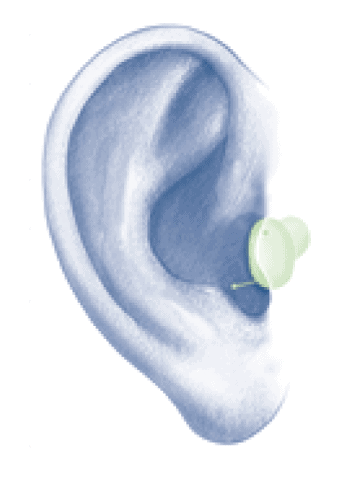Hearing Solutions
Procedures
Treatment for hearing loss
For hearing loss that is not able to be surgically corrected, hearing aids provide a solution.
Hearing Solutions
There are many manufacturers of hearing aids, and most provide a similar portfolio of styles and features.
The different styles of hearing aids are all designed to compensate for hearing loss by providing amplification for an individual’s degree and configuration of hearing loss.
The hearing aid(s) you get depends on various factors, including your listening needs and your personal preferences in terms of comfort, appearance, cost and lifestyle.
Hearing Specialists is a 100% independent clinic and can fit any hearing aid from any manufacturer. We do not endorse any manufacturer over another and will provide the best option available.
- Most robust hearing aid
- all the electronics are housed together, behind the ear
- mould/thin tube is easier to keep clean
- mould is less discrete

Receiver in the canal (RIC)
- the smallest hearing aid that sits behind the ear, as part of the electronics (the receiver) is placed in the ear canal
- more prone to wax and moisture damage to the receiver and may need replacing

In the ear/In the canal (ITE/ITC/CIC/IIC)
- easier to insert/remove
- more prone to wax and moisture damage, as the whole hearing aid sits in the ear

CROS/Bi-CROS
- used when there is unaidable hearing loss in one ear
- the transmitter picks up sounds from the poorer hearing side and transmits them to the hearing aid on the better hearing side
- can have behind the ear or in the ear options
BAHA – bone-anchored hearing aid
- used when a traditional hearing aid is not possible or ideal
- suitable for
- those who have persisting ear discharge
- those who have hearing loss due to the absence of ear canals or malformations of the middle/outer ears
- those who have no hearing in one ear

